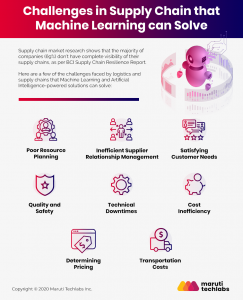The ability of your organisation to endure this pandemic lies in how resilient and adaptable it is and you will be needing both these traits from your employees. However, the duty of self-care must start from yourself.
As a business leader, you may be struggling as well, but what’s important is that you look after yourself while also staying open about the reality of the situation for you. You can bring a big change by having a positive outlook, role modelling healthy behaviours, and sharing how you are feeling. That said, leaders must also be aware of the fact that caring for employee mental health and helping employees combat their fear of the virus is a shared responsibility in which employers, managers, and employees themselves all have to play a part.
Here are some ways leaders can support employees who are worried about the coronavirus:
Make employees’ well-being your top priority
Employees want reassurance that their organisation will put them first whenever possible, especially in difficult times. Many leaders, however, are ignorant of how exactly their employees are coping. Some may be caring for the elderly parents who are vulnerable. Some of them may be caring for children who cannot go back to school. Some may, in fact, have naturally high anxiety. And the stress of constantly being in a “fight or flight” mode can be quite debilitating.
In a recent survey conducted by Harvard Business Review, majority of the respondents said that their employer is taking care of them in the best way possible (74%), that their employer is putting safety above profits (72%) and that their employers’ response is “exactly what it should be” (72%). It’s great how most employers receive good marks for the way they’ve responded to the pandemic so far.
As a leader, it is your responsibility to stay in close touch with your employees. If there are a few of them who need something extra, figure out how you can lend a helping hand. Something as simple as a phone call can do wonders and show them that you truly care for them. Reaching out to those struggling and monitoring the mental health of your employees is not something you can do only to maintain a positive workplace culture, it is also the most human thing you can do as a leader during these challenging times.
Communicate, communicate, and communicate
The media is inundated with terrifying stories about people dying due to COVID-19. Sadly, many people have friends and family members who have become the victim of the deadly virus.
With so much uncertainty around, the responsibility falls upon the leaders to reassure employees and be the calm voice of reason. Tell your employees what you are doing to keep them safe. Keep them informed about what is happening with their company. Also, share how you as a leader are feeling. Ensure your communication is unambiguous.
Remember, how you communicate is equally important as what you communicate. Try to include both logical and empathetic statements in all communications to create psychological safety. Make space for conversations that explore people’s emotional response. Talk to your employees even if they are furloughed. Reach out one-on-one and don’t forget the power of making it personal.
Combat fear with inspiration
It’s quite hard to remain motivated in this time of crisis. However, with inspiration as the antidote to fear, leaders can work to make things better as employees need thoughtful, inspired leadership to see the light. They can use this crisis as an opportunity to help employees overcome challenges that might also have silver linings. Share your personal journey with your team. Inspire them by communicating how they can try to rebuild our post-COVID world better and stronger. Tell them how you are finding the light at the end of the tunnel.
Furthermore, it’s also a good idea to set a clear and short roadmap for your organization’s objective and galvanize your employees around a common goal. Mould your plans and align your approach to manage COVID-19 with your broader purpose.
Business & Finance Articles on Business 2 Community
(42)
Report Post







